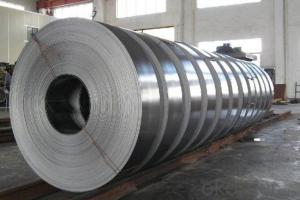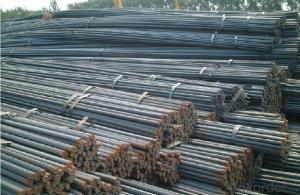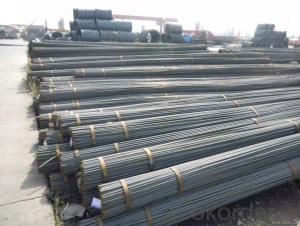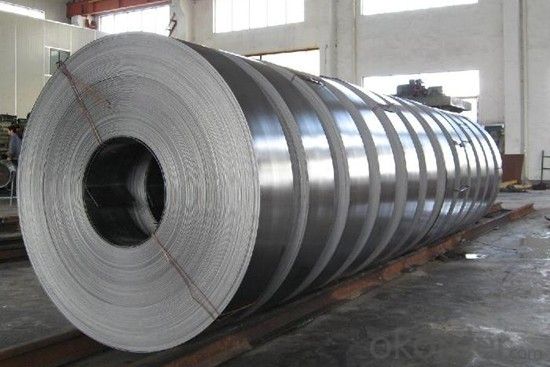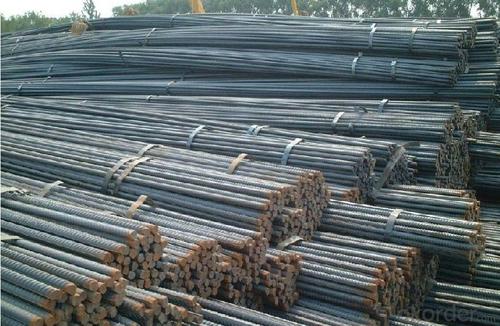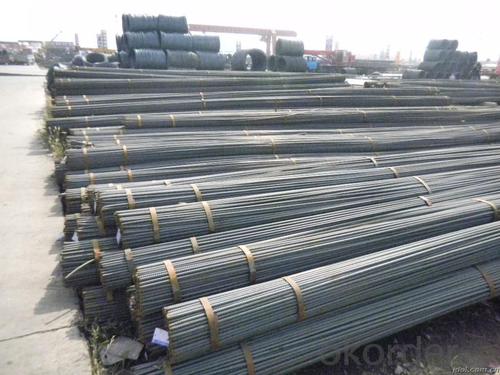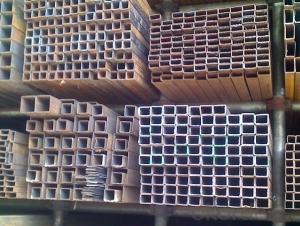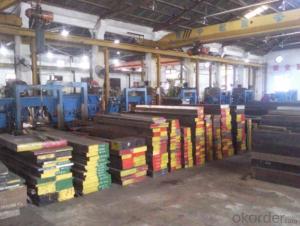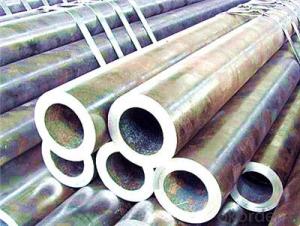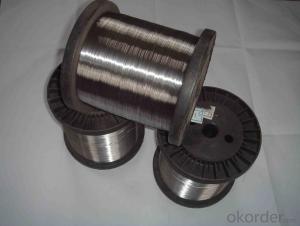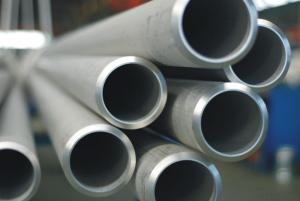Steels from China Manufacture Building Material on Hot Sale
- Loading Port:
- Tianjin
- Payment Terms:
- TT OR LC
- Min Order Qty:
- 100 m.t
- Supply Capability:
- 1000 m.t/month
OKorder Service Pledge
OKorder Financial Service
You Might Also Like
1.Packaging & Delivery
Packaging Detail: | in bundles or as customer's requirement |
Delivery Detail: | Within 30days after receiving your deposit or copy of L/C |
2.Specifications
HRB400,HRB500 Steel Rebars
1.China direct supplier
2.Best service
3.Competitive price
4.Quantity assured
3.Product Description
Name | High Tensile Export Reinforcing Steel Bar ,Deformed Steel Bar ,HRB400B,HRB,46B,HRB500 Building Construction Material |
Standard | ASTM A615 /BS BS 4449 /GB HRB/ JIS G3112 |
Grade | A615 Gr40/60/75 BS 4449 Gr460,B500 GB HRB335,HRB400 ,HRB500
JIS G3112 SD390
|
Diameter | 6mm-40mm |
Length | 6-12m |
Technique | Low temperature hot-rolling reinforcing deformed steel rebar |
Tolerance | As the standard or as your requirement |
Application | Building, construction, road, bridge,etc |
Certificated | BV |
MOQ | 500tons per size steel rebar |
Packing details | Steel rebar packed in bundle or as your requirement |
Delivery | Within 30 days after deposit |
Payment | T/T or L/C |
4.Chemical Composition
Grade | Technical data of the original chemical composition (%) | |||||||
C | Mn | Si | S | P | V | |||
HRB400 | ≤0.25 | ≤1.60 | ≤0.80 | ≤0.045 | ≤0.045 | 0.04-0.12 | ||
Physics capability | ||||||||
Yield Strength(N/cm2) | Tensile Strength(N/cm2) | Elongation (%)
| ||||||
≥400 | ≥470 | ≥14 | ||||||
Grade | Technical data of the original chemical composition (%) | |||||||
C | Mn | Si | S | P | V | |||
HRB500 | ≤0.25 | ≤1.60 | ≤0.80 | ≤0.045 | ≤0.045 | 0.04-0.12 | ||
Physics capability | ||||||||
≥500 | ≥630 | ≥12 | ||||||
5. Theorectical weight
Diameter (MM) | Cross Sectional Area (MM2) | Theorectical Weight (KG/M) | Weight of 12M Bar (KG) | A Ton Contains 12M Bars (PCS) |
6 | 28.27 | 0.222 | 2.664 | 375.38 |
8 | 50.27 | 0.395 | 4.74 | 210.97 |
10 | 78.54 | 0.617 | 7.404 | 135.06 |
12 | 113.1 | 0.888 | 10.656 | 93.84 |
14 | 153.9 | 1.21 | 14.52 | 68.87 |
16 | 201.1 | 1.58 | 18.96 | 52.74 |
18 | 254.5 | 2 | 24 | 41.67 |
20 | 314.2 | 2.47 | 29.64 | 33.74 |
22 | 380.1 | 2.98 | 35.76 | 27.96 |
25 | 490.9 | 3.85 | 46.2 | 21.65 |
28 | 615.8 | 4.83 | 57.96 | 17.25 |
32 | 804.2 | 6.31 | 75.72 | 13.21 |
36 | 1018 | 7.99 | 98.88 | 10.43 |
40 | 1257 | 9.87 | 118.44 | 8.44 |
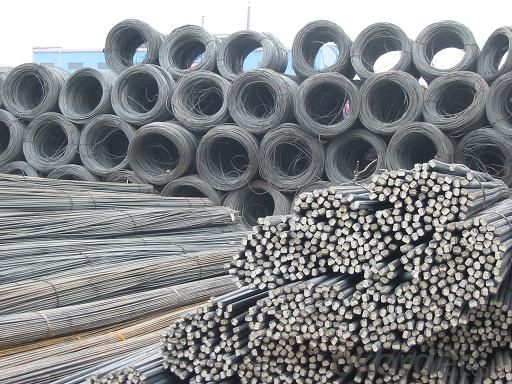
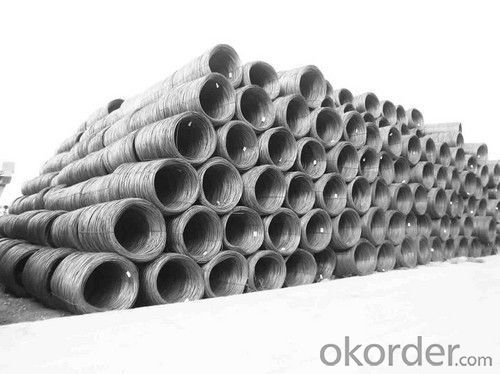
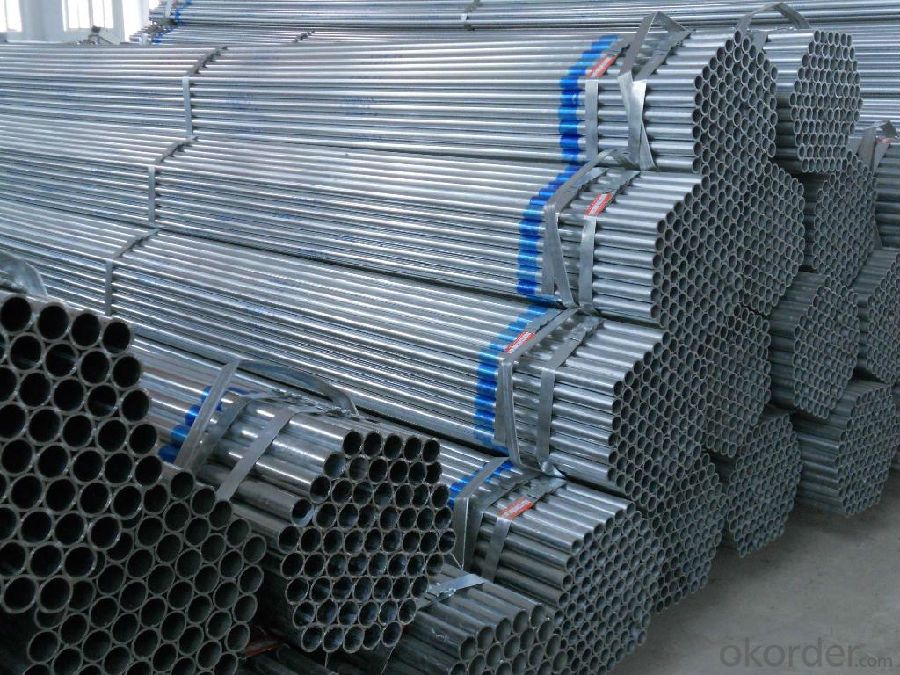
- Q: Why can't stainless steel be put together with carbon steel tube?
- Stainless steel can not be put together with carbon steel because of galvanic corrosion
- Q: What are the different types of steel pipe supports for thermal expansion?
- There are several types of steel pipe supports for thermal expansion, including fixed supports, sliding supports, and variable spring supports. Fixed supports are rigid and do not allow for movement, while sliding supports allow for limited axial movement. Variable spring supports use mechanical springs to accommodate thermal expansion and contraction, providing continuous support while allowing for movement.
- Q: Are steel pipes suitable for use in chemical plants?
- Yes, steel pipes are suitable for use in chemical plants. Steel pipes offer excellent resistance to corrosion, high durability, and can withstand high temperatures and pressures commonly found in chemical processing. Additionally, steel pipes can be easily welded, making them versatile for various chemical applications.
- Q: How can galvanized steel pipe be connected with stainless steel pipe?
- Welding methods are used to connect. Because galvanized pipe is in fact carbon steel pipe, so galvanized pipe and stainless steel pipe welding, in fact, carbon steel and stainless steel welding, welding of dissimilar materials.
- Q: What is the role of steel pipe manufacturers in sustainable development?
- The role of steel pipe manufacturers in sustainable development is crucial as they play a significant part in promoting environmentally-friendly practices. Steel is a highly recyclable material, and manufacturers can contribute to sustainable development by using recycled steel to produce pipes. Additionally, they can implement energy-efficient production processes, reduce waste generation, and adopt responsible sourcing practices. By prioritizing sustainability, steel pipe manufacturers can minimize their environmental impact and contribute to the overall goal of achieving a more sustainable future.
- Q: What are the different standards and specifications for steel pipes?
- There are several different standards and specifications for steel pipes, depending on their intended use and application. Some of the commonly used standards include ASTM A53, ASTM A106, ASTM A333, and API 5L. These standards define various aspects such as the chemical composition, mechanical properties, dimensions, and testing requirements for steel pipes. Additionally, specific industries may have their own specifications, such as ASME B36.10 for seamless and welded steel pipes used in piping systems.
- Q: Galvanized steel pipe in addition to good rust resistance, what are the advantages?
- First, the surface of the steel pipe is treated by embroidery, which is more durable, not faster than the rapid oxidation, and will not form white rust on the steel tube;Two. The steel pipe is fully protected. After heating, each part of the steel pipe is plated with zinc, and the concave convex part is protected;
- Q: What are the different international standards for steel pipes?
- The industry recognizes and utilizes multiple international standards for steel pipes. Some noteworthy standards are as follows: 1. ASTM A53: This standard encompasses black and galvanized steel pipes, both seamless and welded. It finds common application in low-pressure scenarios involving water, gas, and steam. 2. ASTM A106: This standard covers seamless carbon steel pipes designed for high-temperature usage. It sees widespread use in refineries, power plants, and petrochemical industries where elevated pressure and temperature conditions prevail. 3. ASTM A312: This standard pertains to austenitic stainless steel pipes that are seamless, welded, and heavily cold worked. It is frequently employed in industries such as chemical processing, food processing, and pharmaceuticals, where high temperatures and corrosive environments are encountered. 4. API 5L: This standard outlines the requirements for manufacturing seamless and welded steel pipes for use in pipeline transportation systems within the petroleum and natural gas industries. It specifies two product specification levels (PSL1 and PSL2). 5. EN 10216: This European standard addresses seamless steel pipes utilized for pressure purposes. It finds application in various industries, including power generation, chemical, and oil and gas. 6. JIS G3454: This Japanese standard focuses on carbon steel pipes used for pressure service, commonly employed in the transportation of water, gas, and oil. 7. DIN 2448: This German standard provides specifications for seamless steel pipes used for general purposes. It is extensively utilized across various industrial applications. These examples represent only a fraction of the numerous international standards governing steel pipes. Each standard delineates distinct requirements concerning manufacturing, dimensions, mechanical properties, and testing to ensure the pipes' quality and performance in specific applications. Manufacturers, suppliers, and users must comprehend and adhere to the relevant standards to guarantee the safe and reliable utilization of steel pipes.
- Q: How are steel pipes used in the construction of airports?
- Steel pipes are used in the construction of airports for various purposes such as drainage systems, fuel pipelines, water supply networks, and structural support for buildings and runways.
- Q: What are the factors to consider when selecting a steel pipe for a specific application?
- When selecting a steel pipe for a specific application, there are several key factors to consider. These include the desired strength and hardness of the pipe, its corrosion resistance, its ability to withstand high temperatures or extreme conditions, its compatibility with the intended fluid or gas, the required dimensions and specifications, as well as the cost and availability of the pipe. It is also important to assess the specific requirements and demands of the application to ensure the selected steel pipe will meet the desired performance and longevity.
Send your message to us
Steels from China Manufacture Building Material on Hot Sale
- Loading Port:
- Tianjin
- Payment Terms:
- TT OR LC
- Min Order Qty:
- 100 m.t
- Supply Capability:
- 1000 m.t/month
OKorder Service Pledge
OKorder Financial Service
Similar products
Hot products
Hot Searches
Related keywords
